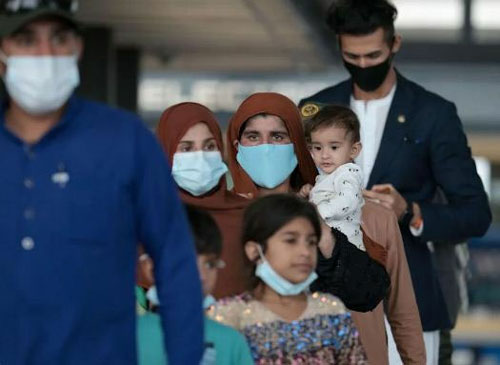Suketu Mehta
Sometimes the best take on current affairs is found not in the punditry of the cable shows but in great literature. Watching the horrific scenes in Kabul—the anguish of parents handing their babies to soldiers, the bodies falling from planes—made me reach for something deeper, more profound, that could help me understand the human dimensions.
So I re-read ‘Kabuliwallah’, a story written by the Indian Nobel Laureate Rabindranath Tagore in 1892.
It’s became a phenomenon in India: it’s a part of school syllabi all across the country, has been made into numerous films in multiple Indian languages, and still shapes popular Indian attitudes towards Afghans. It makes me cry every single time I read it.
It is one of the greatest stories about the migrant experience every written, and it deserves a global audience outside India—parit deserves to be re-read in India now, which is experiencing a government-led upsurge of fear and hatred of Afghan Muslim refugees.
The most harrowing image from the evacuation of Kabul was the hundreds of people clinging to the giant U.S. Air Force plane as it takes off.
At least two of them held on until the plane took off, and fell from it—two tiny black dots crudely circled in red in a Twitter post.
What desperation made them cling to a plane taking off into the sky? What do they dream of, who do they love? ‘Kabuliwallah’ provides some of the answers—and also raises other questions, about the complex attitudes of hosts to migrants.
‘Kabuliwallah’ is a story, not about a political refugee, but about someone who has to leave his troubled land to find work and to support his family.
On a planet on the move, whether you’re slotted as a refugee, migrant, expatriate, or tourist, can mean, literally, the difference between life and death. Etymology is destiny.—Agencies










